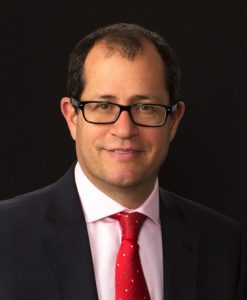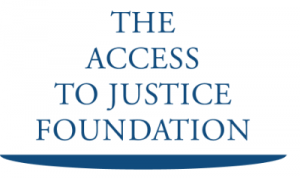
We are delighted to welcome Laurence Harris as the new Chairman of the Access to Justice Foundation, taking over from Lord Goldsmith, QC who has stepped down after 12 years in the role.
Laurence Harris is currently a partner at international law firm Cooley LLP and is vice chair of its global litigation department. He is a solicitor who has practiced in the area of commercial litigation all his career. He advises Governments, large corporates and high net worth individuals in complex commercial disputes. He was one of the founder partners of the London office of Cooley when it was launched in January 2015. Prior to joining Cooley, he had been Managing Partner of a UK law firm, and then Deputy Managing Partner of a large US law firm. He is a solicitor-advocate. He has been a Trustee of the Foundation since 2012.
On behalf of the Access to Justice Foundation we would like to welcome you to your new role as Chairman. Can you tell us a bit about yourself?
Thank you. It is a huge honour and privilege to lead the Foundation’s Board; Peter Goldsmith is going to be a tough act to follow! I am a solicitor and a partner at Cooley’s London office, where I practice as a general commercial litigator. I’ve always practised in that area though I have also been quite involved in leadership roles at this and my prior firm during my career as well.
Can you tell us how you first came to be involved with ATJF and what attracted you to the organisation?
I have always had a significant involvement in pro bono work; when I was at Law School, many years ago, I started doing cases with FRU, and also did some work at my local law centre. More recently, I’ve greatly enjoyed being on the rota to represent litigants in person in the Chancery Division’s CLIPS Scheme. I applied to join the Board of the Foundation when I saw an advert for the position; at that time the Foundation was much smaller, but the idea of being involved in an organisation which was raising money from different parts of the legal profession to help the front line really appealed as a great opportunity to make a tangible contribution to really important work. Then I talked to Ruth Daniel a bit more and was completely sold on what ATJF was doing. It’s come a long way since then but still holds true to the aims that attracted me to join.
What do you consider to be the most significant challenges facing the sector at this time?
Even before Covid there was a desperate need to find more money for the sector and Covid has simply exacerbated it. However, it is wonderful that we have seen such a positive response, and that the Community Justice Fund, which ATJF has been helping to lead, has been able to allocate £6m already in grants over the last four months focussed around the immediate crisis. This money will make a huge short term difference. The challenge now is to raise and then distribute a similar sum over the next year to help organisations in a much longer term strategic way; to improve sustainability, to help tackle the digital challenges and to allow the sector to meet the greatly increased numbers of those in need of advice as a result of the current crisis.
What are your immediate areas of focus as Chairman?
I am working hard to support the professional team; they have done an extraordinary job, led by Ruth, of dramatically scaling up our grant making over a very short period. Ensuring the professional team get the right support, counsel and strategic direction from the Trustees is a critical part of any successful charitable organisation. I am also seeking to reinforce the relationships the Foundation has at Trustee level with others in the sector. Finally, we have recently been through a recruitment process and added a significant number of new Trustees, and so ensuring they are well integrated into the Trustee team is an important priority.
Can you share with us the longer term priorities for ATJF?
Over the last few years we have increasingly become the leading organisation in the sector which really understands where money is needed, and the natural partner to those who want to help the sector financially. We want to continue to develop our leadership role, using it to attract more money into the sector from a variety of different sources. Working increasingly in partnership with other funders, growing the funding base, and ensuring through better strategic co-ordination that the money goes further are key long term priorities.
Why is access to justice important to you?
It is fundamental to society that everyone has meaningful access to justice. Without that access, society has failed and we will see greater and greater numbers of people left behind, falling into poverty or otherwise suffering severe hardship. No decent society should tolerate that. Supporting advice so that people can assert their rights is fundamental.
And finally, what is the best piece of advice you’ve ever been given?
In my first seat as a young trainee, I sat with a very wise partner who told me that the only thing I could really ever do wrong was not talk to someone when I feared I had done something wrong. I’ve always found that talking through apparently intractable, difficult or tricky issues with others usually produces a way forward.
